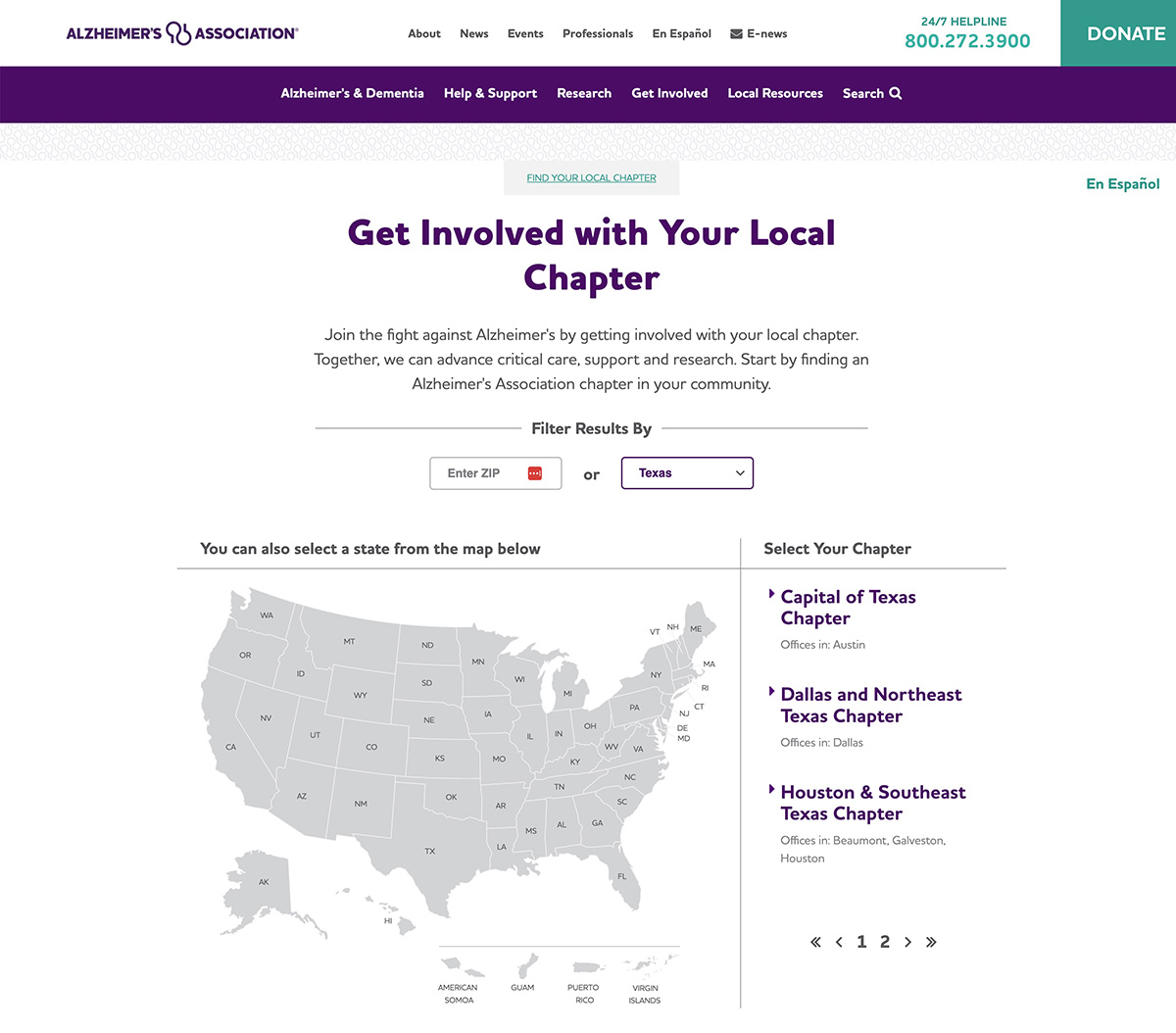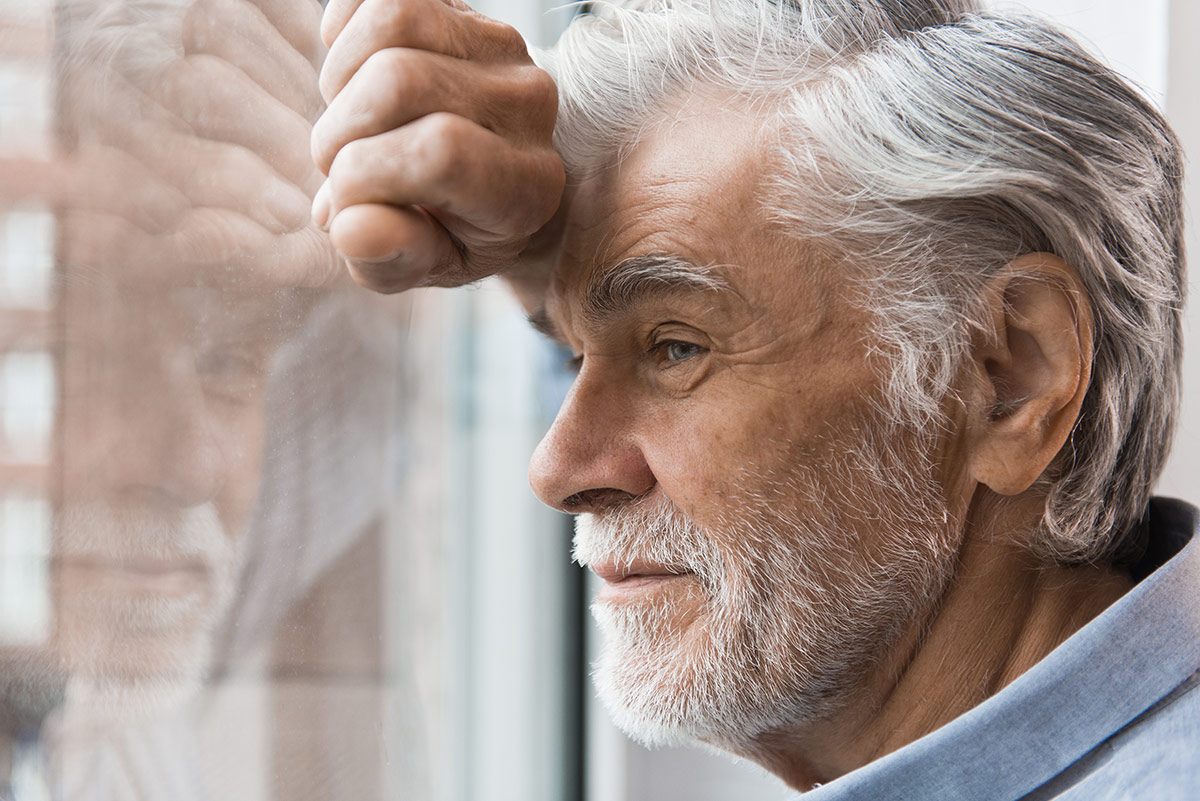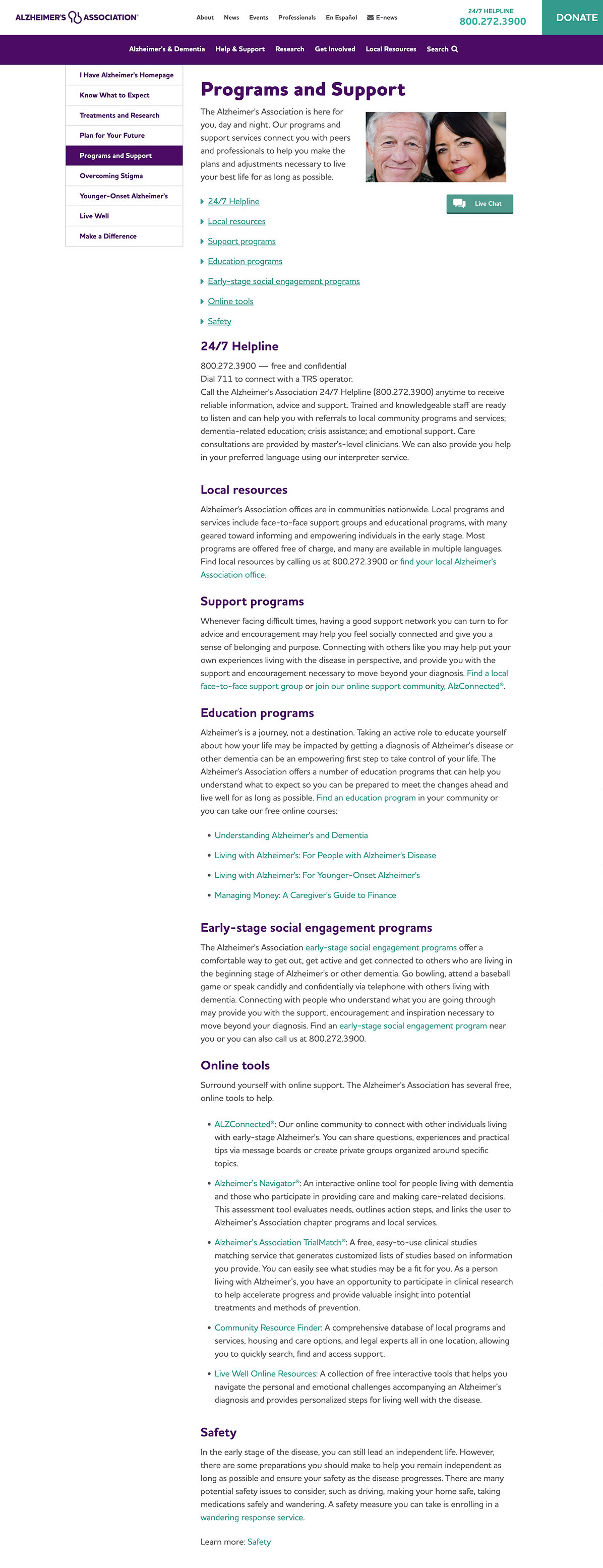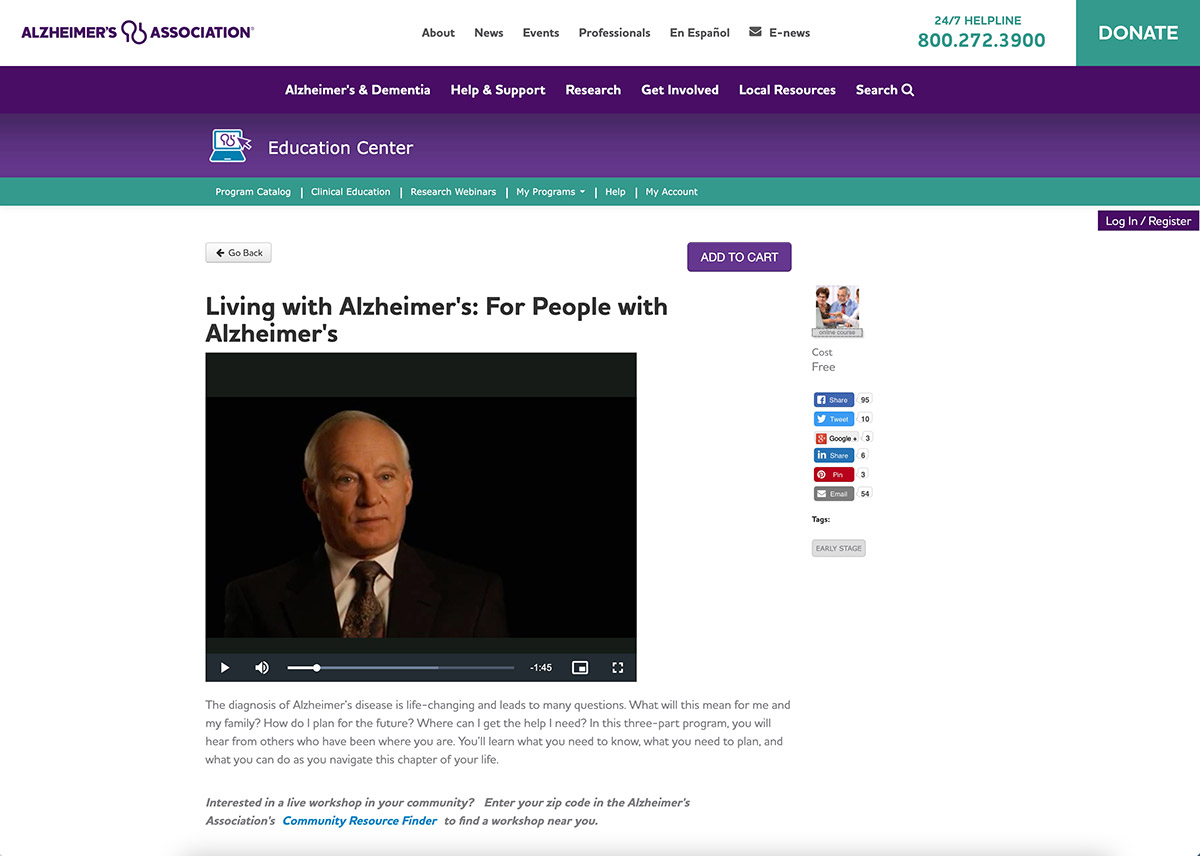Learning You Have Alzheimer’s Disease

The hardest part
You thought the forgetfulness was simply due to age. You thought the confusion was caused by something else—hunger or tiredness. But then your symptoms increased. Your loved ones began to worry. You went to the doctor. They performed some tests. And now you have been diagnosed with Alzheimer’s disease.
It’s one of the most difficult diagnoses you can receive because Alzheimer’s, as we know, doesn’t have a cure yet. Outlooks for patients have greatly improved with medications and research, but it is still a fatal disease.
And its future and impact on you are unknown. Some live with Alzheimer’s for a decade or more. Some decline rapidly. You don’t know what your future holds. Perhaps you watched a loved one live with Alzheimer’s. You’re wondering if you’re looking at the same fate.
With the diagnosis comes questions, fears, anxieties and uncertainties.
Not only do you have to deal with the disease physically, but you must also deal with it emotionally.
And that can be the hardest part.
What to expect with your diagnosis

It’s normal to feel distress with an Alzheimer’s diagnosis. It’s normal to feel an array of feelings. Many feel disbelief at first and enter into a time of denial. We do this when our brains have a hard time reconciling information with our reality. It’s easiest to deny that reality.
In time, however, acceptance of Alzheimer’s is much more beneficial than denial. Acceptance allows you to move forward. Denial keeps you stuck.
In addition to denial, when you receive an Alzheimer’s diagnosis, you may feel anger, sadness, shock, fear, loss, shame, numbness, or even relief.
Relief might seem like a strange reaction, but a diagnosis puts language around the symptoms you’ve been feeling, and that can be a huge relief. Before an official diagnosis, you knew on a subconscious level that something was wrong with you, but you didn’t know what. That ambiguity can cause distress. Finally having the words to describe your condition makes it less ambiguous. You can articulate what’s happening to you, rather than wondering if something really is wrong or if you’re going crazy.
A diagnosis can also tell you how to move forward, what doctors you need to see and what medications you need to take. This is empowering and can give you a sense of control you probably didn’t feel pre-diagnosis.
The diagnosis may also be a relief to your loved ones who were wondering what was wrong and now know how to care for you.
Many who receive an Alzheimer’s diagnosis might experience an identity crisis of sorts. When you have to retire from work, can’t drive your car anymore, and can’t do the activities you once could, you may question who you are without these things. It’s normal to question this and feel a sense of languishing because of it.
Grief is also very common and can accompany acceptance of your diagnosis. Once you accept you have Alzheimer’s disease, you may begin to grieve life as you know it. You know the future will look different and feeling sadness for that loss is normal. In fact, it’s healthy because grief helps us move forward.
Your loved ones will likely grieve as well. They will miss the abilities you were once able to do, or they will anticipate the grief they will feel in the future.
Whatever you are feeling after your diagnosis, it’s important to let yourself feel it. Dismissing the emotion or shoving it done simply means it will have to come up later and your journey with accepting the diagnosis will be prolonged.
Talking to a counselor or joining an early-stage support group can be incredibly helpful during this time. To find a support group near you, check with your local Alzheimer’s Association chapter, which you can find here.

Now What?

Maybe you’ve received an Alzheimer’s diagnosis and you and your loved ones are working through the ensuing emotions, taking steps toward acceptance.
What do you do now?
There are several actions you can take to set yourself up to live the best life you possibly can while living with Alzheimer’s.
Educate yourself
You may not want to educate yourself on the disease because you’re afraid of what you will find out, but educating yourself is more beneficial than you might think.
Once you understand the disease and how it’s affecting you specifically, you will feel better equipped to make decisions about your future, you will know how to talk about the disease with others, and the questions you have about your diagnosis will be answered.
Sometimes these questions are subconscious, and we try to keep them that way. We don’t want the answers because we’re afraid to know the truth. But when we let questions linger, our anxiety actually grows. When we’re able to learn and discuss things openly, our questions disappear and we are equipped with the knowledge we need.
Educating yourself about Alzheimer’s disease will also allow you to decide what your priorities are as far as treating your symptoms and will give you a sense of empowerment, allowing you to make decisions about your future, which can often feel out of your hands.
The Alzheimer’s Association is an excellent resource for learning about the disease. Their free online workshop Living with Alzheimer’s is a great place to start. We also have a number of resources on our website that can educate you on the stages of Alzheimer’s, the difference between Alzheimer’s and dementia, and the importance of memory care.
Talking to your doctor is also helpful. Set a time to sit down with your doctor and ask all the questions you have. They will be able to better explain the disease, your brain, and what your particular journey with Alzheimer’s might look like.
Find support
As we mentioned earlier, early-stage support groups can be helpful soon after learning about your diagnosis, but support groups for you and your loved ones can provide ongoing support and care as you progress through the disease.
Being in a room full of people who know what you’re going through can make you feel less isolated and alone. This type of communal support can do wonders for your mental health as you adjust to a new normal in your life.
Numerous programs and support groups exist for people with Alzheimer’s. Visit the Alzheimer’s Association website here to learn more.

There are also numerous support groups for your loved ones, especially if they will be caring for you during this time. To learn more about support groups and programs for caregivers of dementia and Alzheimer’s, click here.
You can also seek support from a counselor or clergy member.
Stay connected to others and maintain a sense of meaning and purpose
You may not be able to follow a conversation as well as you used to. You may be forgetting people’s names or feeling confused when you’re in someone else’s home. Because of this, you will feel tempted to isolate yourself, not go out and spend most of your time alone. But staying socially connected to your friends, family and community is crucial when you have Alzheimer’s.
These connections have been proven to help depression and improve brain health. Since depression can often accompany a diagnosis like Alzheimer’s, it’s important to maintain, develop or grow your social connections however possible.
Being a part of a community also gives you a sense of purpose, and staying involved with your family life will give you a sense of meaning and belonging. Purpose, meaning and belonging are essential to life. Just because life looks different now, doesn’t mean you don’t have meaning and purpose.
If you’re religious, staying connected to your local church or place of worship can be very beneficial. Not only do these places offer a sense of community, but they also provide spiritual and emotional support as you navigate this new season of life. Staying connected to your spirituality can also give you a greater sense of meaning and purpose.
Joining a social Alzheimer’s group is another great way to stay connected to others who are going through what you’re going through. You could join a walking or yoga group or a group that meets in a restaurant or museum, whatever fits your interests. Check your local Alzheimer’s Association chapter to get connected to a group like this.

Consider clinical trials and research programs
Clinical trials and research programs are ongoing for Alzheimer’s disease. These trials and programs help test new medications and determine prevention strategies. You can volunteer to be a part of a clinical trial that will help advance Alzheimer’s research. Ask your doctor about any availability and whether or not you would be a good candidate. Clinical trials do come with risks, so make sure you understand those before moving forward.
Get your affairs in order
While this may not be the first thing you want to do after getting an Alzheimer’s diagnosis, having a living will and durable power of attorney for health care is important no matter your health status but especially if you are living with an Alzheimer’s diagnosis. These documents will allow you to determine what kind of medical care you want to receive and will allow you to designate someone else to make those decisions on your behalf.
Click here to learn more about organizing your legal affairs after an Alzheimer’s diagnosis.
An Alzheimer’s diagnosis is life-altering for you and everyone around you. Give yourself and your loved ones time to adjust. Feel what you need to feel, grieve, then take action by educating yourself as much as possible and determining a course of care that will ensure you live out your diagnosis with a sense of meaning and purpose.







